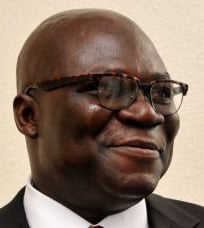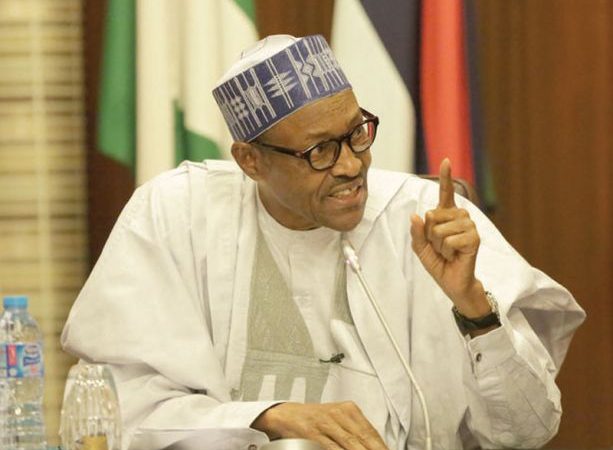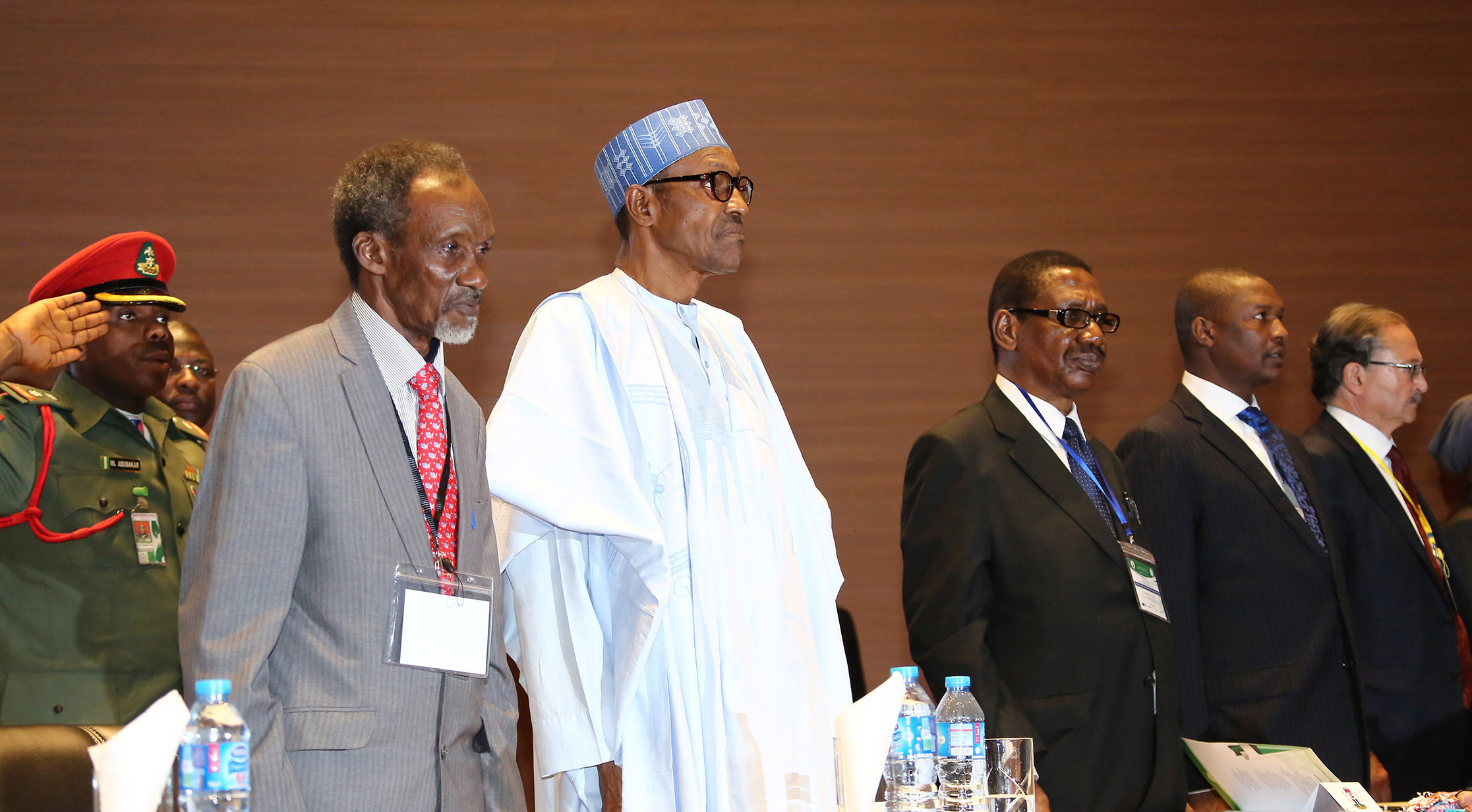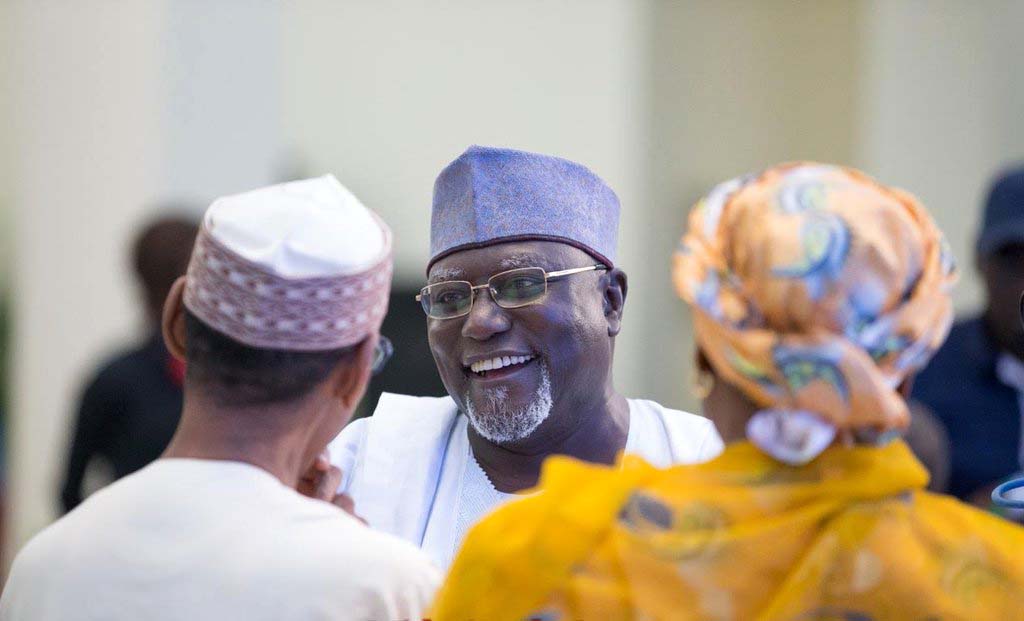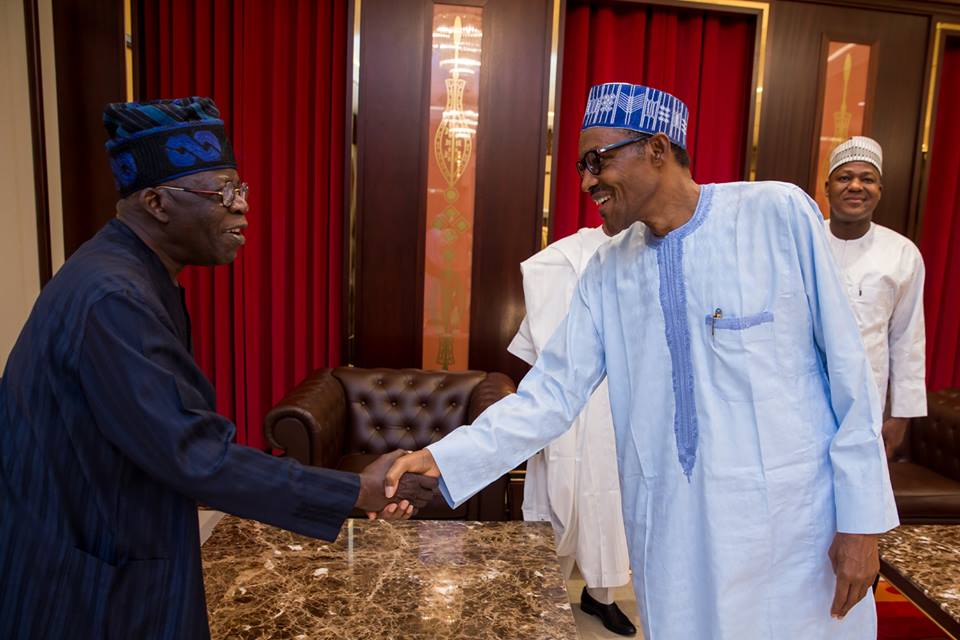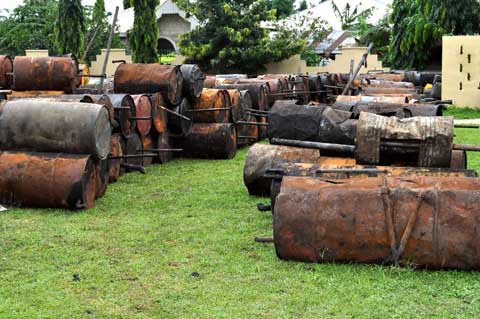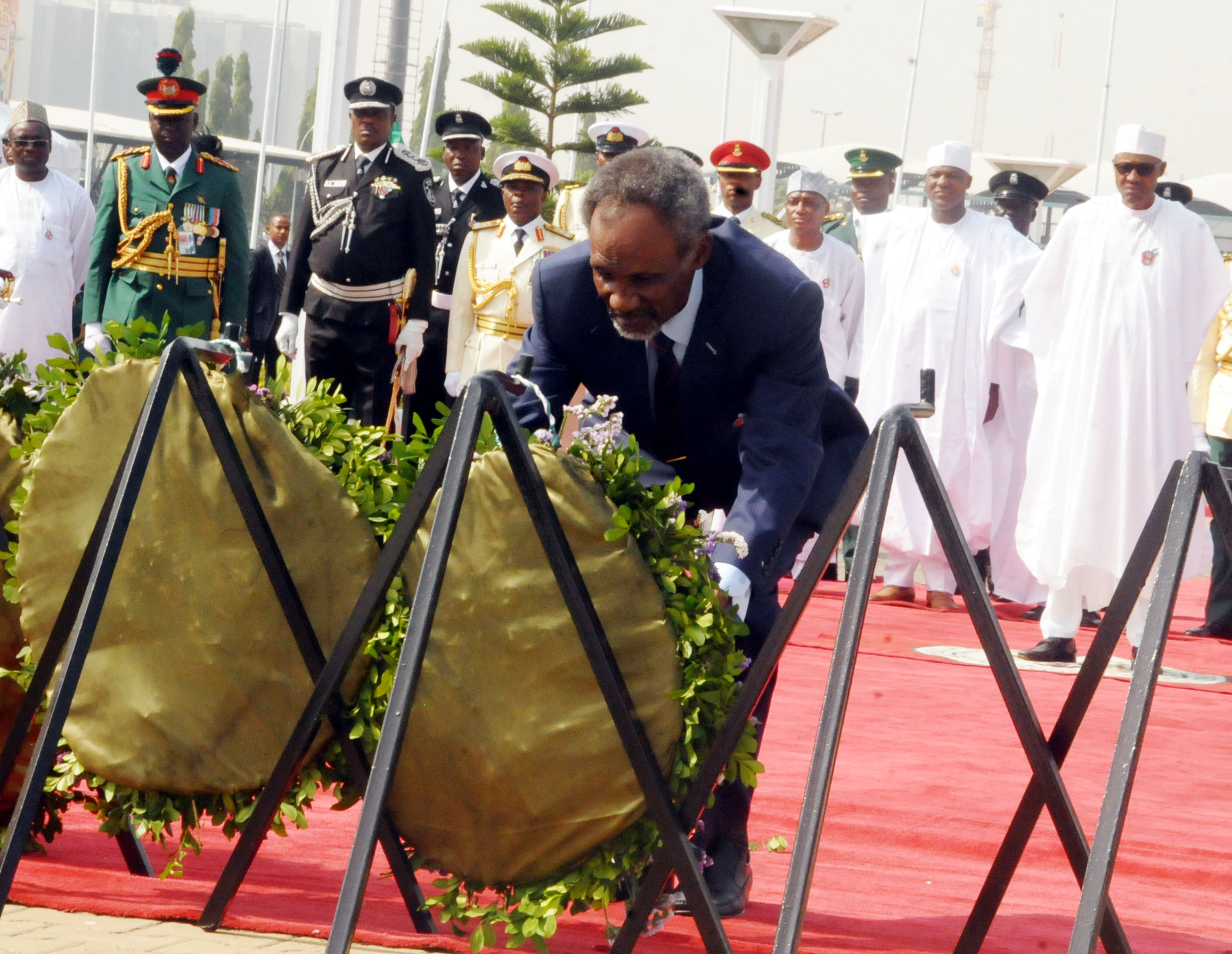President Muhammadu Buhari’s strategists, if they are at work at all, are chasing ants and ignoring the elephant in the room. They do him great disservice. Their oversight is hubristically determined either by incapacity or a vendetta-induced distraction. It is time they changed the game and the narrative; time they woke up. It’s been more than 15 months since the incumbent assumed office as President, but his handlers have been projecting him as if he is a Umaru Musa Yar’Adua or a Goodluck Ebele Jonathan, first time Presidents who could afford the luxury of a learning period before settling down to the job, and who in addition must prove themselves to earn necessary plaudits. In making this mistake, President Buhari’s handlers created a sad situation whereby they have progressively undermined his image.
The truth is that Muhammadu Buhari is neither a Yar’Adua nor a Jonathan. He may have sought the office of President in three previous elections, before succeeding at his fourth attempt in 2015, but he came into office on a different template. He had been Head of State of Nigeria (1983-85) and had before then served his country at very high levels as military administrator, member of the Supreme Military Council, head of key government institutions and subsequently from 1985 -2015, as a member of the country’s Council of State, the highest advisory body known to the Nigerian Constitution.
In real terms, therefore, General Muhammadu Buhari did not need the job of President. If he had again lost the election in 2015, his stature would not have been diminished in any way. His place in Nigerian history was already assured. That is precisely why it was possible to package him successfully as a man on a messianic mission to rescue Nigeria from the People’s Democratic Party (PDP) and whatever is ascribed to that in the emotion-laden field of Nigerian politics.
He might have acquired many IOUs when he assumed office in 2015, as all politicians do, but he was not under any pressure to pay back and he was so well positioned in the people’s reckoning and historically that he could call anyone’s bluff and get away with it. That much is of course obvious. Many of the persons and groups who could claim that they helped him to get to power a second time are today not in a position to dictate to him. Long before such persons left their mother’s homes for boarding school, he had made his mark as a Nigerian leader. He could look them straight in the eye and cleverly put them in their place. Corrupt patronage is a strong element of Nigerian politics and so far, President Buhari has shown a determination to limit the scope of such politics. Whether that is right or wrong is a matter of political calculations, and if current intimations are anything to go by, that may even prove costly in the long run.
Advertisement
Nonetheless, when a leader assumes office with his kind of helicopter advantages, it should not be expected that he would hit the ground like a tyro in the corridors of power. Not too many persons in his shoes get a second chance to return to power after a gap of 30 years. As it happened in his case, he would be expected to run the country as a statesman, not as a party man, as a bridge-builder, not as a sectional leader and as father of all. The writer of his inaugural speech alluded to this last point in that borrowed statement about belonging to everyone and to nobody. Charles de Gaulle of France originally made that statement in 1958 when he returned to power as President and founder of the Fifth Republic. Charles de Gaulle had been an army General and one of the key figures in the drama of World War II. In his second coming, De Gaulle built an unforgettable legacy.
President Buhari’s handlers may have had an idea of going in such direction but so far, they have taken their eyes off the legacy project. The best way to remember a President of the incumbent’s status is with regard to the legacy he leaves behind. We do not need to travel to 20th century France to borrow an elaborate example. We have the home-made example of former President Olusegun Obasanjo. Like Buhari, Obasanjo had been Head of State. Like him also, he returned to be civilian President. Obasanjo did not try to impress Nigerians with the daily grind of governance or obsession with the past. He played a legacy game from the first day. The military had been excused out of power. Nigerians by 1999 were so angry with military rule, they just wanted change.
Obasanjo capitalized on that and helped to prepare the foundations for the consolidation of the democratic process. Nigeria had been a pariah nation within the international community and a weakling within the continent. With a combination of charisma, street wisdom and the reactivation of old networks, Obasanjo regained for the country, the respect it deserves. He met a country in debt. He paid off the debts by 2005, and made the country financially stable again. He surrounded himself with bright and talented technocrats, including foreign consultants and within government circles if not outside, he actively encouraged the free flow of ideas. In doing this, he cultivated the image of a strong, charismatic leader. He also refused to be trapped by ethnic or religious considerations. He had his own faults and there was a lot to complain about as I did at the time, but looking at the big picture, Obasanjo was a good manager of complex relationships, and he had a good sense of humour. Out of office, it is possible indeed to speak of the Obasanjo legacy in Nigerian history in rich and detailed terms.
Advertisement
There are parallels between the circumstances that brought General Obasanjo and General Buhari back to power, and if you wish, you could tease out the connections. But while the former immediately began to build a legacy out of the opportunity, the latter is yet to embark on a defined legacy mission. No political leader ever built a legacy out of complaints and excuses. An obsession with the past does not produce a legacy; it defeats it. Nor is the restriction of human freedom a legacy-building gesture. General Sani Abacha violated the dignity of virtually every institution in the country but he is remembered more for stabilizing the economy and for creating additional states, particularly Bayelsa, where he is considered a hero. Obasanjo often deployed power as if it was a whiplash, making his politics ambiguous, but that is not the substance of his legacy. A leader’s legacy lies in those steps he takes to transform society for good and for the people’s benefit.
President Buhari’s handlers should begin to think of what legacy he intends to leave behind. A legacy is something big and memorable, not routine exertions or bland ceremonies, the type civil servants are perpetually bringing before a sitting President to keep him in motion, in the absence of movement. I do not intend to construct a possible legacy project for the Buhari administration: a legacy is meant to be the product of careful deliberation, vision and resolve, not something to be thrown up casually in a limited newspaper copy. But there are grand moves to be made, and that should be done, because a legacy cannot possibly arise from the mere fact of being President of a country twice between the 20th and 21st centuries.
If I must make a few suggestions, however, it seems to me that there is a legacy-building opportunity in the same National Political Conference Report that the government of the day seems determined to ignore. Even if that 2014 Report is ignored: the issues relating to the restructuring of Nigeria have been on the table since independence and more coherently since the 2005 Political Conference which was aborted due to a controversial attempt to hand over a Third Term to the Obasanjo administration through the back door.
President Buhari has both the pedigree and the courage to take some bold steps about how Nigeria is presently constituted and ensure not limited reform but far-reaching transformation: create new states, merge some states, if possible, review the revenue allocation formula, embark on legacy infrastructure projects, introduce some alterations in key areas of national life, merge parastatals to reduce cost and duplication, take up some neglected ideas about public finance and give effect to them, revisit the oil and gas sector and further reform it, crush Boko Haram. Nigeria’s politics is complex and can be frustrating for those who choose to swim in its murky waters, but ultimately every leader will be judged on his record. How would President Buhari like to be judged? It is not too early to pose this question.
Advertisement
Legacy is not a destination; it is built one step at a time. It is not an accident; it is a process and the summation of concrete steps to make a difference. The Buhari administration should begin to develop a legacy mindset; this will include measuring the feedback from the people carefully in terms of how their expectations are being met or denied. If this will require a change of team or emphasis, now is the time to take that decision.
Views expressed by contributors are strictly personal and not of TheCable.
Add a comment
